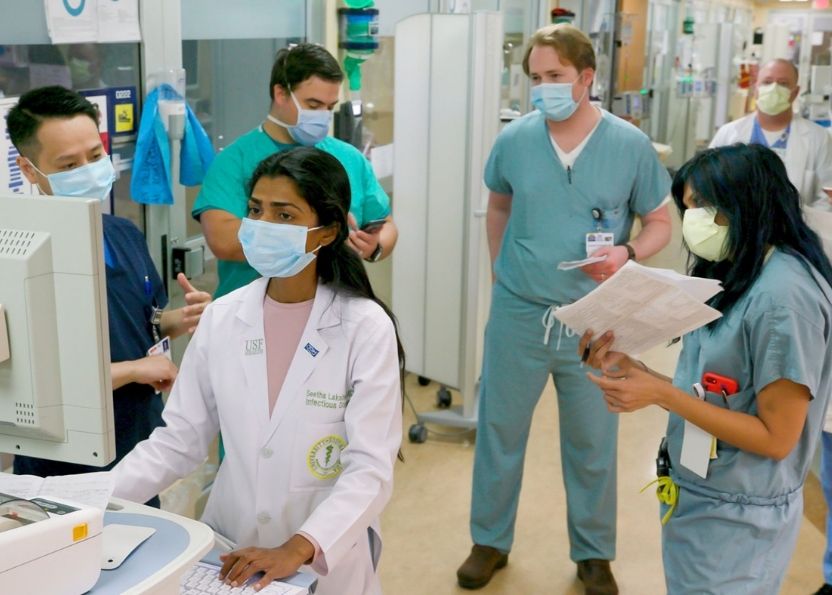What Tampa General Hospital Has Learned About Omicron Variant
Published: Dec 30, 2021
Tampa General Hospital’s Chief Medical Officer, Dr. Peggy Duggan, recently shared what she and the TGH medical staff have learned from treating the first Omicron variant patients in an article published by the Tampa Bay Timeson Dec. 29, 2021.
Omicron Variant Is Extremely Infectious
According to Dr. Duggan:
- Precautions that public health officials recommend may frequently change as they learn more about the Omicron variant.
- Omicron is extremely infectious and may present symptoms different from those caused by previous variants. “There’s a lot more sneezing than before,” said Duggan, which may increase transmission rates as the virus propels through the air.
- For people who are vaccinated and boosted, contracting COVID-19 now may result in symptoms that could resemble a fever, cold or allergies.
- The unvaccinated and those who haven’t received a booster shot remain at risk for more serious infection. However, there appears to be less pneumonia developing in patients, keeping many of the hospitalized off ventilators. “It’s early,” Duggan said. “Two weeks from now, it could be a lot different.”
Don’t Go to the Emergency Room to Get Tested
- While experts say it’s important to get tested for COVID-19, Duggan said, “We should go anywhere but the emergency department for tests.”
- Reducing the number of people entering the hospital helps control the spread of the virus and allows hospitals to focus their attention on treating the sickest patients.
- If you need to get tested, go to a local pharmacy, urgent care center or public testing site instead of the emergency room. For information about TGH Urgent Care powered by Fast Track or to make a reservation, visit https://www.fasttrackurgentcare.com/ or call 813-925-1903.
Treating Omicron Differs from Delta
- The way Tampa General Hospital treats Omicron patients is shifting from the way it handled treating patients with different variants. According to Duggan, treatments such as monoclonal antibodies that were effective for the Delta variant don’t appear to be as effective with Omicron.
- New oral antiviral drugs that can be taken at home may soon help. Pfizer’s paxlovid has received emergency use authorization from the Food and Drug Administration. Merck is seeking approval for molnupiravir.
- Duggan said getting annual COVID-19 vaccination shots could become a norm moving forward.
The Best Protection: Vaccines and Boosters
- Duggan said those who have received two vaccine doses of Pfizer or Moderna are encouraged to get a booster shot as soon as they are eligible.
- Those who received the Johnson & Johnson vaccine should get a booster shot after two months, preferably using one of the Pfizer or Moderna mRNA vaccines.
- The effectiveness of vaccines can be reduced three to six months after the initial doses and the third shot quickly boosts immunity.
- Everyone age 5 and older is eligible for vaccination. Everyone age 16 and older is eligible for a booster. “Your immune system really bounces right back,” Duggan said.
Masks and Social Distancing Recommended
- Tampa General Hospital strongly encourages everyone to get vaccination and booster shots, and to practice social distancing.
- Everyone should wash their hands frequently and always wear masks indoors.
- Instead of using thin cloth masks, it’s better to use surgical masks, preferably N95 masks or KN95 masks.
- Another option is to double-mask by wearing a cloth mask over a surgical mask.
